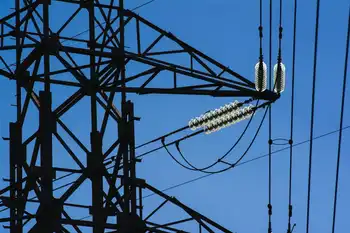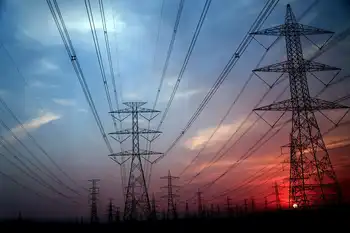Grocers stocking up on power
That's how much money at least one Florida grocery chain expects to spend on large electrical generators to keep stores operating in case a hurricane blows out some or all of Florida's electrical grid.
The investment will be worth it, company executives say, after some hard lessons from the active 2004 hurricane season when four storms walloped the state in close sequence.
The scenario that Publix and other grocery chains are trying to avoid: dark stores filled with rotting food and thousands of customers looking for supplies.
Although some chains are spending heavily on generators, others are taking a more cautious approach and buying a handful of portable generators to truck in if a storm strikes.
Publix is making the biggest bet on backup generators.
The Lakeland-based chain is almost finished with a $100 million project to install permanent backup generators that run on diesel at stores considered "hurricane-prone." That means nearly every Publix store in Florida, coastal Georgia and South Carolina. Other Publix sites have been rewired so portable generators can be plugged in quickly.
Publix has finished installing backup generators at more than 500 stores. Each generator is the size of a minivan and powerful enough to power the entire location: lights, refrigerators, air conditioning and cash registers.
Publix officials say they eventually will install generators at nearly all 932 stores in the Southeast. All new Publix stores are being built with generators on site or portable hookups if the layout doesn't permit a permanent generator.
Some stores had a brief test when Florida suffered an unexpected rolling blackout in February. Generators in several Publix stores automatically kicked on, said Publix spokeswoman Shannon Patten.
Sweetbay, by contrast, is heading in a somewhat different direction for hurricane season. The chain has bought six large, portable electrical generators, including three that can power every function of a store. The smaller generators can run refrigeration and cash registers. Total cost: about $1.5 million.
Sweetbay's strategy is to store mobile generators at strategic sites in the Southeast and move them to any of the roughly 100 Florida Sweetbay stores that lose power. Toward that end, the company has installed new wiring in all of its stores so generators can be plugged in quickly.
Whether they will have enough generators will depend on the hurricane season, Sweetbay officials say.
"It depends on the need, and last year there wasn't the need for generators," said Sweetbay spokeswoman Nicole Lebeau. The odds are slim, she said, that stores in different areas of Florida would go out at once.
She also notes Sweetbay, owned by Delhaize Group, is a relatively new company compared with Publix and is still investing heavily on expansion.
Wal-Mart, which may have deep pockets as one of the world's biggest companies, has no plans to invest heavily in store generators. Wal-Mart operates 158 Supercenter stores with groceries in Florida and 19 Neighborhood Markets.
In most cases, Wal-Mart does not have generators at store locations.
"We do have a number of portable generators that we can move to strategic locations in advance of a predictable natural disaster, such as a hurricane," said a Wal-Mart spokesman, Dan Fogleman.
The grocery giant has struck deals with generator suppliers if the company needs more, he said.
Related News

Opinion: Now is the time for a western Canadian electricity grid
EDMONTON - The 2017 Canadian Free Trade Agreement does not do much to encourage provinces to trade electric energy east and west. Would a western Canada electric grid help electricity consumers in the western provinces? Some Alberta officials feel that their electric utilities are investor owned and they perceive the Crown corporations of BC Hydro, SaskPower and Manitoba Hydro to be subsidized by their provincial governments, so an interprovincial electric energy trade would not be on a level playing field.
Because of the limited trade of electric energy between the western provinces, each utility maintains an excessive reserve of thermal and…





